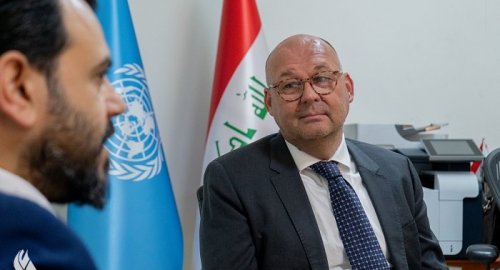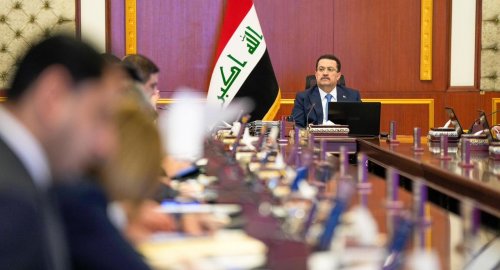
Iraq Completes 90% of Gulf Power Grid Link Project

- 30-12-2024, 11:41
Baghdad – INA
Ministry of Electricity announced on Monday that 90% of the Gulf electricity interconnection project has been completed, as the country advances efforts to diversify its energy sources.
Ministry spokesperson Ahmed Mousa told the Iraqi News Agency (INA): “The ministry continues to implement electricity interconnection projects to enhance grid stability and diversify energy sources.”
He explained that “these interconnection projects, alongside combined cycle projects and reliance on renewable energy sources such as solar power and waste recycling, contribute to achieving high grid stability. They also allow Iraq to benefit as a key member of the regional energy market, whether in the Arab or Gulf region.”
Mousa noted that “90% of the Gulf electricity interconnection project has been completed, with three companies under the Gulf Cooperation Council Interconnection Authority working on constructing a transmission line linking Iraq’s Al-Faw station with Kuwait’s Al-Wafra station.”
He added that “the first phase of the project is expected to become operational with a capacity of 500 megawatts, supplying Basra Governorate at the start of next year.”
Regarding the Iraqi-Jordanian interconnection project, Mousa stated that “the first phase of the project has been completed, delivering 54 megawatts, which has helped provide electricity to Rutba district after 11 years of relying on generators.”
He continued, “The second phase is underway and will connect Al-Qaim station in Iraq with Risha station in Jordan. The project includes advanced phases for synchronous interconnection between Iraq, Jordan, and Egypt.”
On the Turkish interconnection project, Mousa highlighted that “the first phase has been launched with a capacity of 300 megawatts in northern Iraq, and work is progressing on the second phase to add another 600 megawatts.”
As for the Saudi interconnection project, he noted, “A technical consultancy contract has been signed for the project, defining connection points and work mechanisms, with an initial capacity of 1,000 megawatts. Completion is expected within 36 months.”
Mousa emphasized that “Iraq is moving forward in diversifying energy sources through interconnection projects, making it both a beneficiary and a vital transit point for energy while ensuring its security.”
Barcelona steals exciting win from Celta Vigo, La Liga
- Sport
- 25/04/19
Ayatollah Al-Sistani offers condolences on the passing of the Pope
- politics
- 25/04/21
Iraq: Security services rely on military manufacturing production
- Security
- 25/04/19












